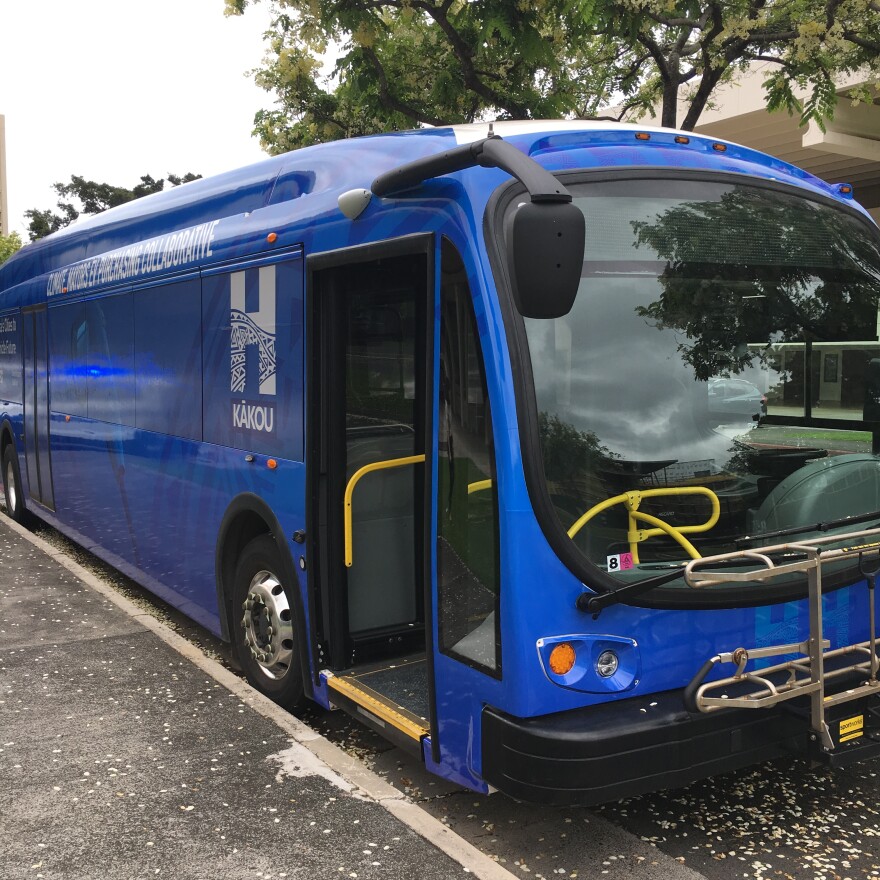Updated: June 27, 2:50 p.m.
Honolulu is the location of the U.S. Conference of Mayors' 87th annual meeting, where the discussion will cover such wide-ranging issues as abortion, health care and trade.
The summit is taking place Thursday at the East-West Center Imin Center. The mayors shared solutions to problems that include carbon emissions.
The U.S, Conference of Mayors begins Friday and runs through Monday with events largely held at the Hilton Hawaiian Village. Over 225 mayors are expected to attend. Key scheduled speakers include Karen Pence, wife of the vice president; Caroline Kennedy, former ambassador to Japan; U.S. House transportation committee chair Peter DeFazio; and Tokyo Governor Yuriko Koike.
Ahead of the meeting, Mayor Kirk Caldwell hosted a summit of the Climate Mayors and C40 Cities group that arose after the U.S. pullout from the Paris Accord. The mayors looked specifically at transportation to reduce their carbon footprints.
The group detailed how they are buying electric vehicles for their cities to collectively bring down the cost.
Mayor Eric Garcetti of Los Angeles has led the Electric Vehicle Purchasing Collaborative, an initiative to make electric vehicles cheaper for local governments.
“When the cities of America together say, in the next few years, we’re going to be buying hundreds of thousands of vehicles from our ports to our airports, our public transportation systems, police officers, et cetera, we suddenly become a collaborative that can reduce the price and send a signal to industries, ‘Make those vehicles and we will buy them,’” said Garcetti.

Honolulu Mayor Kirk Caldwell says Hawaii is committed to switching all public vehicles to electric vehicles by 2035. The city also aims for private vehicles to be completely switched over by 2045.
In 2017, Honolulu City Council approved more than $1.4 million in federal funding for electric buses. Caldwell says the city is next looking at purchasing similar vehicles for emergency services.
Josh Stanford, Honolulu Chief Resilience Officer, mentioned micro-transportation measures, such as biking and e-scooters, was another hot topic among mayors when discussing the climate crisis.
“That’s really the future, micro-mobility, and that’s what we’re learning about today,” said Stanford. “How are cities wrestling with these new forms of transportation? How do we make sure it works for the residents of your cities but also make sure that we’re a zero-carbon economy.”



